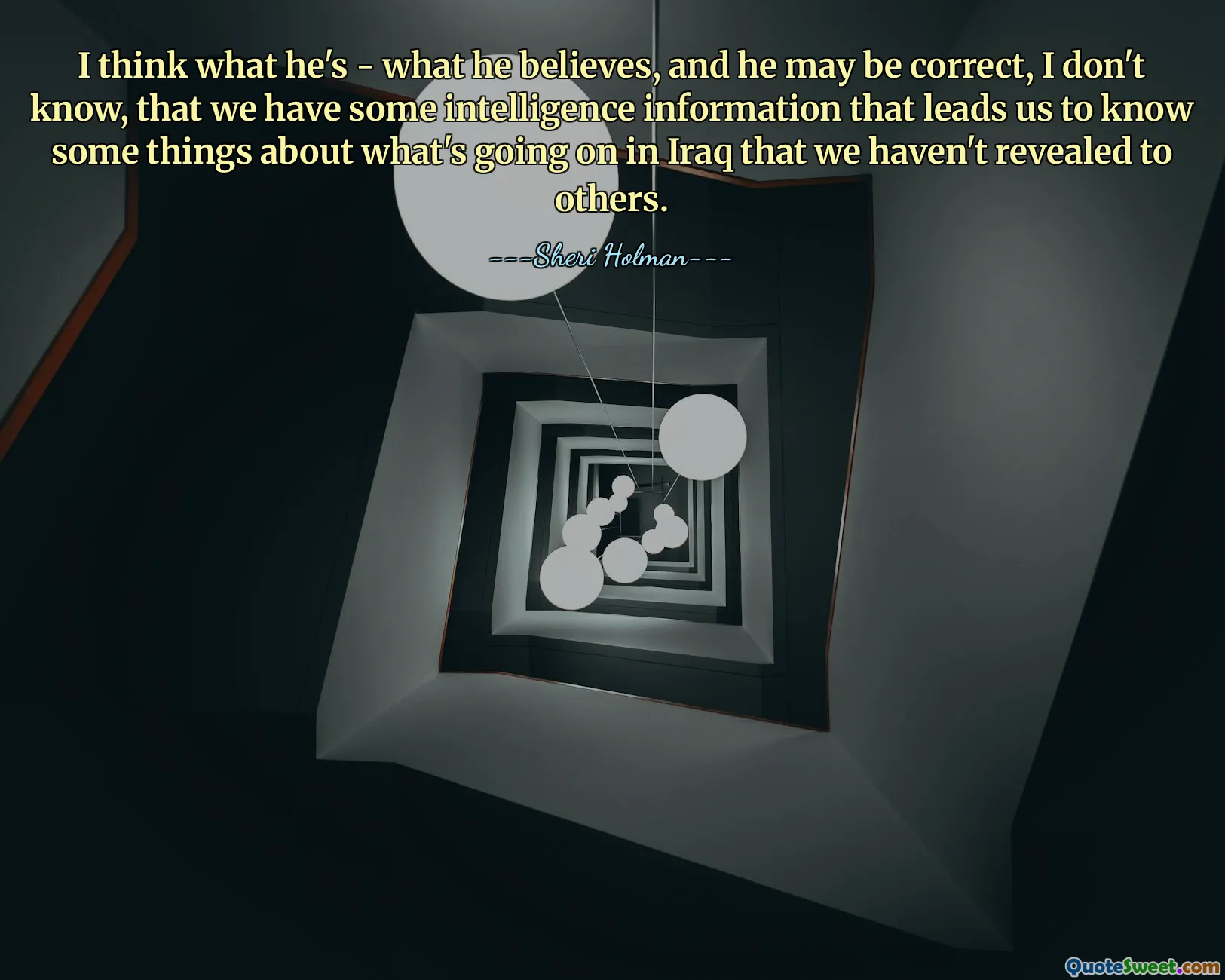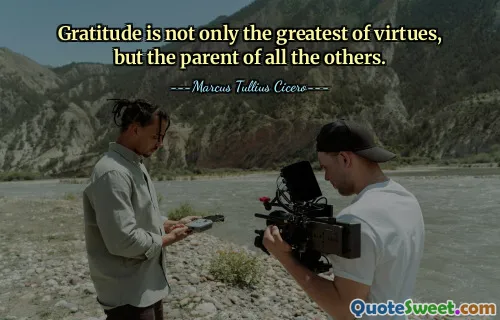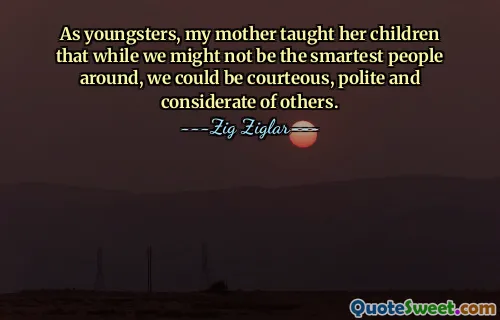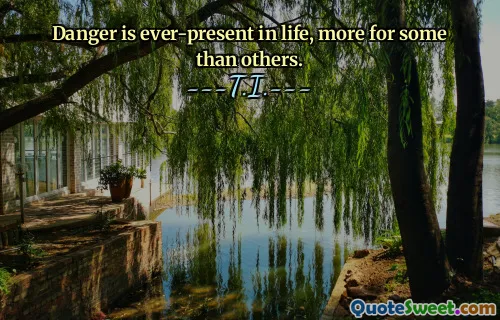
I think what he's - what he believes, and he may be correct, I don't know, that we have some intelligence information that leads us to know some things about what's going on in Iraq that we haven't revealed to others.
This quote delves into the complex nature of intelligence and information secrecy concerning geopolitical events, specifically in Iraq. It highlights the uncertainty and cautious optimism that often accompany intelligence assessments. The speaker expresses a tentative belief in the validity of the information that their analysts possess, suggesting that while they might be correct, there remains some doubt. This reflects the inherent ambiguity in intelligence work, where information is rarely complete, and conclusions are often provisional. Such opacity underscores the delicate balance governments maintain between transparency and confidentiality, especially in volatile regions like Iraq, where information can influence international relations, military decisions, and public opinion. The acknowledgment that some details are hidden from the public or even from other branches hints at the strategic importance of information control in national security. It also touches on the human element—how perceptions and beliefs about the available data can shape policy and strategic discourse. In broader terms, this quote captures the enduring challenge of making judgments under uncertainty, emphasizing that even among experts, certainty is elusive and humility is essential. For those interested in geopolitics, intelligence analysis, or military strategy, the quote reinforces the idea that national security often depends on what is known, what is hidden, and how that information is interpreted within the context of ongoing conflicts and diplomatic negotiations.











